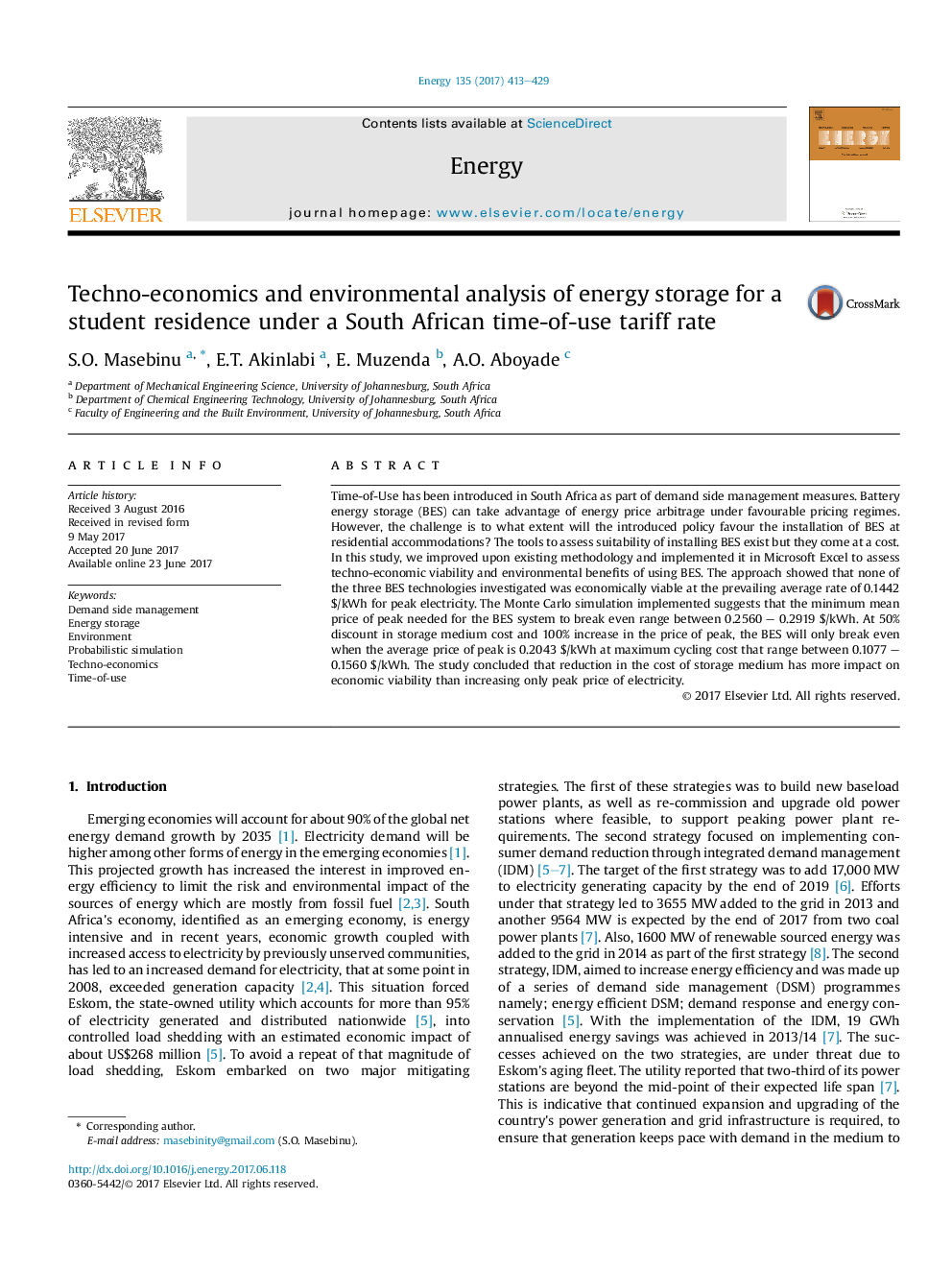ترجمه فارسی عنوان مقاله
تکنو اقتصاد و تجزیه و تحلیل زیست محیطی ذخیره انرژی برای اقامت دانشجویی تحت یک نرخ تعرفه زمانی استفاده از آفریقای جنوبی
عنوان انگلیسی
Techno-economics and environmental analysis of energy storage for a student residence under a South African time-of-use tariff rate
| کد مقاله | سال انتشار | تعداد صفحات مقاله انگلیسی |
|---|---|---|
| 113976 | 2017 | 17 صفحه PDF |
منبع

Publisher : Elsevier - Science Direct (الزویر - ساینس دایرکت)
Journal : Energy, Volume 135, 15 September 2017, Pages 413-429
ترجمه کلمات کلیدی
مدیریت سمت تقاضا، ذخیره انرژی، محیط، شبیه سازی احتمالی، تکنو اقتصاد، زمان استفاده
کلمات کلیدی انگلیسی
Demand side management; Energy storage; Environment; Probabilistic simulation; Techno-economics; Time-of-use;

